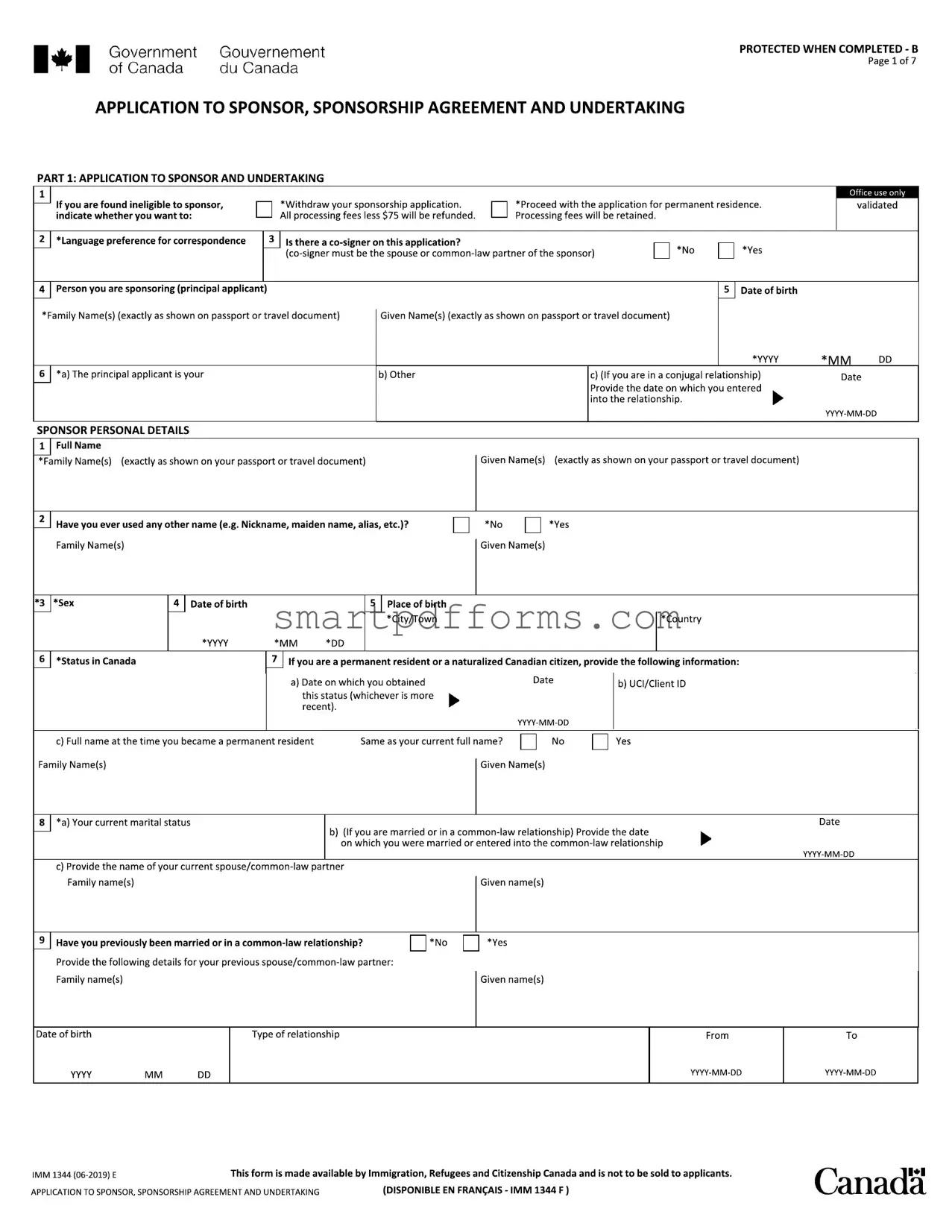Blank Imm 1344 Application PDF Template
The IMM 1344 form is a document issued by Immigration, Refugees and Citizenship Canada that serves several critical functions for individuals seeking to sponsor a loved one for permanent residency in Canada. This form encompasses an application to sponsor, a sponsorship agreement, and an undertaking, which are pivotal elements in the sponsorship process. Applicants are required to provide personal details including their name, date of birth, and marital status, as well as information about their residency status in Canada. The form also requires details about the person being sponsored, including their relationship to the sponsor, personal information, and the specifics of their application. Critical aspects of eligibility for sponsorship are highlighted, with questions addressing the sponsor's age, citizenship or permanent resident status, and current residence, along with considerations for those with previous sponsorship undertakings or who have received social assistance. Additionally, preferences for communication and instructions for sponsors who reside outside Canada but intend to return are addressed. This form is essential for establishing the legal agreement between the sponsor, the person sponsored, and the Canadian government, ensuring that the sponsor understands the obligations they are undertaking to support the arriving individual financially and assist them in becoming established in Canada.
Preview - Imm 1344 Application Form
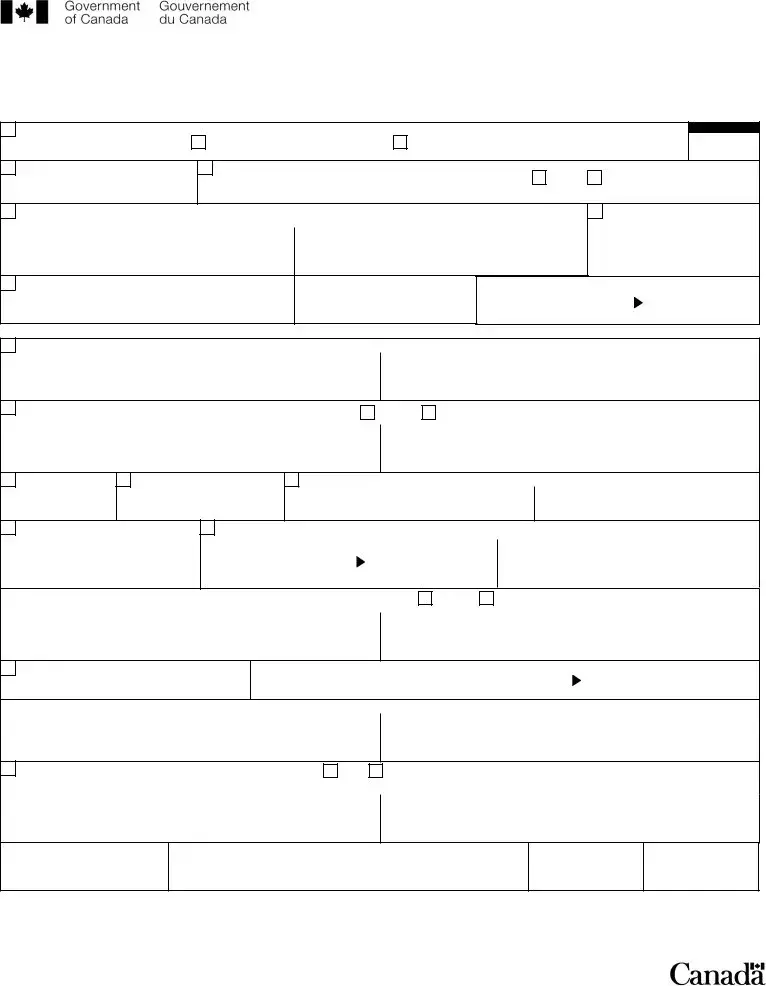
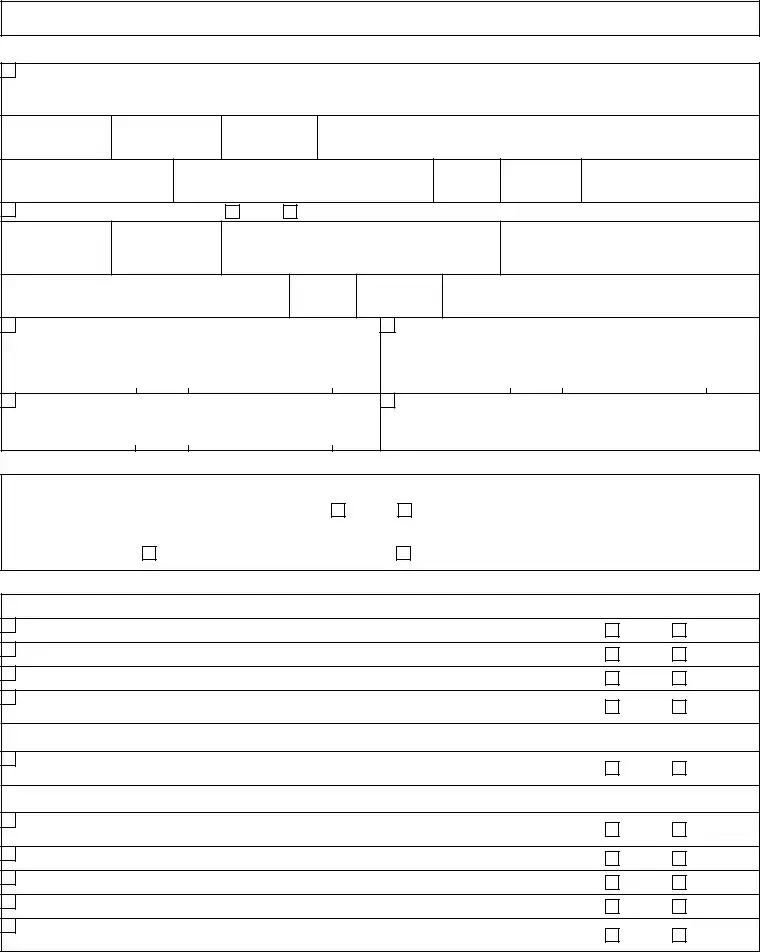
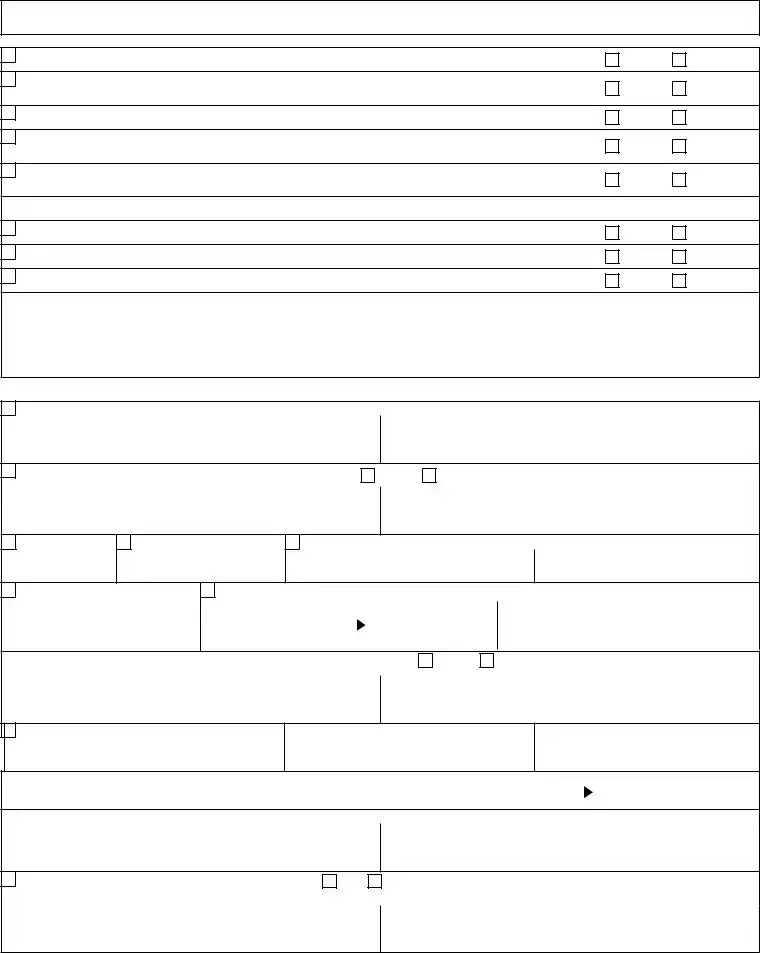
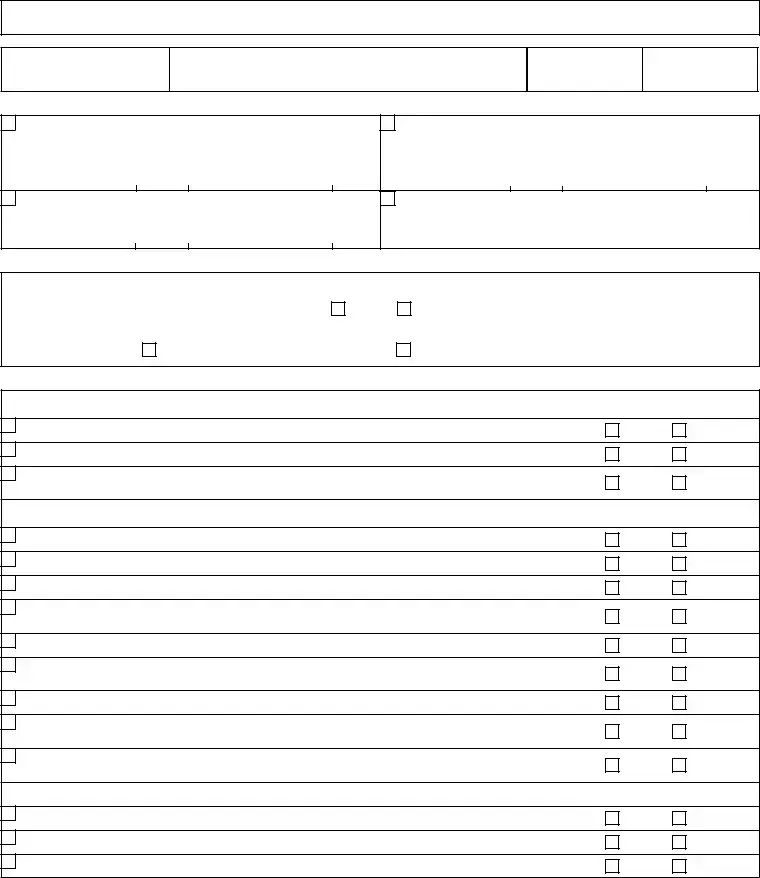

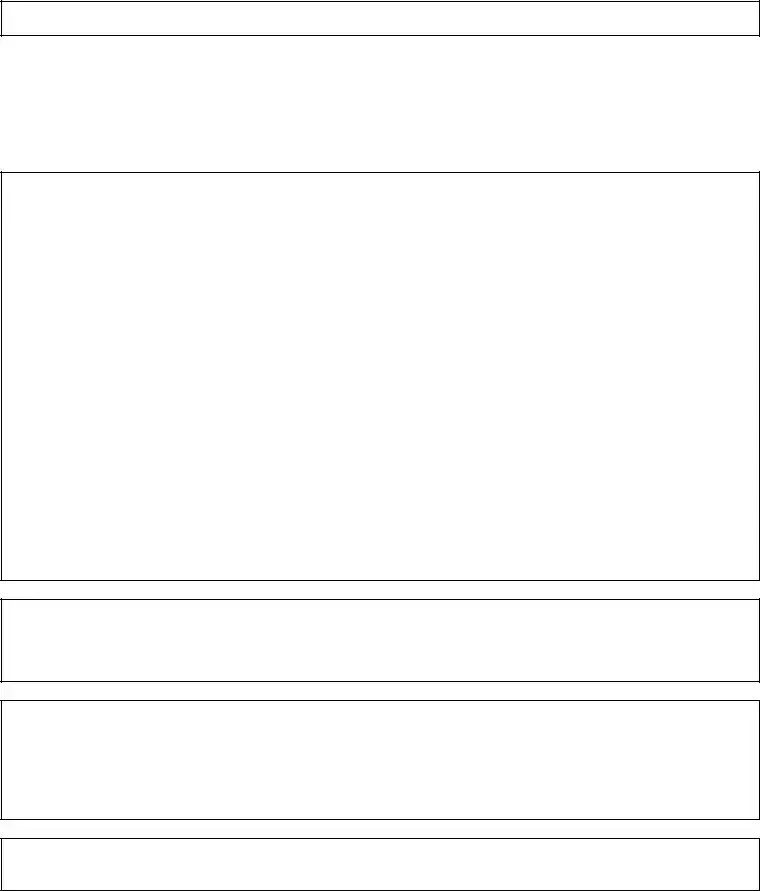
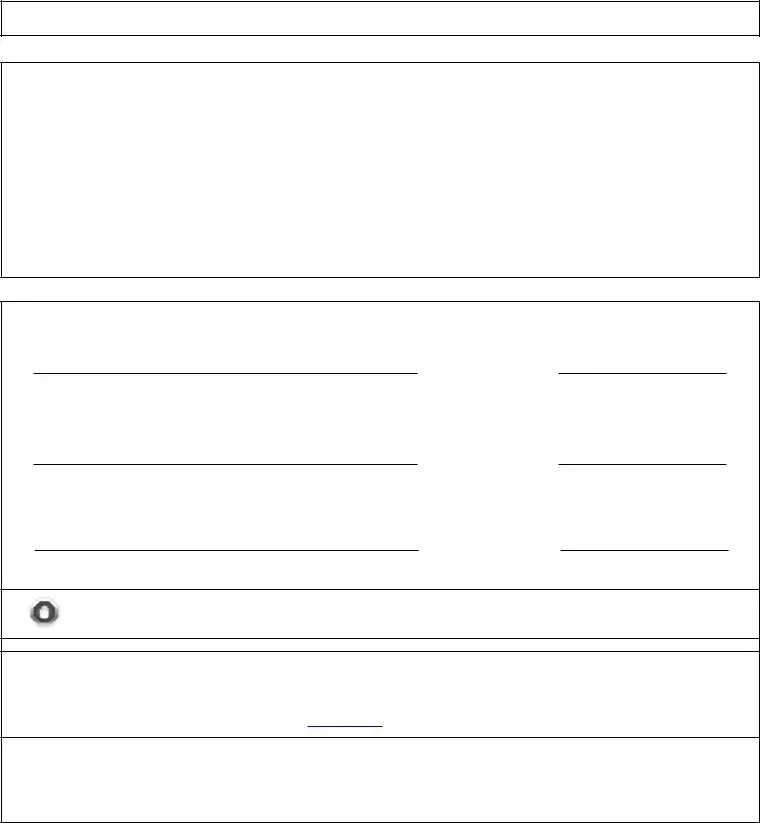
Form Data
| Fact Name | Description |
|---|---|
| Purpose of the Form | The IMM 1344 form is used for an Application to Sponsor, Sponsorship Agreement, and Undertaking within the context of family-class immigration to Canada. |
| Refund Policy | If the sponsorship application is found ineligible, an option is provided to withdraw the application with a partial refund of all processing fees except $75. |
| Co-signer Eligibility | A co-signer on the application must be the spouse or common-law partner of the sponsor, highlighting the form's focus on family reunification. |
| Sponsor Eligibility Requirements | Sponsors must be 18 years or older, Canadian citizens or permanent residents, residing in Canada, and not have been sponsored as a spouse, common-law or conjugal partner in the five years preceding the application. |
Instructions on Utilizing Imm 1344 Application
Filling out the IMM 1344 Application form is a crucial step in the process of sponsoring someone to come to Canada. It's designed to collect information about both the sponsor and the person being sponsored. The form itself consists of several sections, each requiring careful attention to detail to ensure accuracy. Following the steps outlined below will help in completing the form correctly, thus avoiding any unnecessary delays in the application process. Once the form is filled out, it will be submitted along with any required documents and fees as part of the sponsorship application package.
- Part 1: Application to Sponsor and Undertaking
- Indicate whether there is a co-signer for this application.
- Enter the language preference for correspondence.
- Choose whether to withdraw your sponsorship application or proceed with the application for permanent residence in case you are found ineligible to sponsor.
- Sponsor Personal Details
- Provide the full name of the sponsor as shown on their passport or travel document.
- Indicate if you have ever used any other names and provide those names if applicable.
- Fill in your sex, date of birth, place of birth, and status in Canada.
- If you are a permanent resident or a naturalized Canadian citizen, include the date when you obtained this status, your UCI/Client ID, and the full name at the time you became a permanent resident.
- Provide your current marital status, and if you're married or in a common-law relationship, include the details of your current spouse or common-law partner.
- Answer whether you have previously been married or in a common-law relationship and provide details if applicable.
- Sponsor Contact Information
- Enter your current mailing address and indicate if you want all correspondence to be sent to your e-mail address.
- If applicable, specify your residential address, indicating whether it is the same as your mailing address.
- Provide your telephone numbers, fax number, and e-mail address.
- Sponsor Residency Declaration
- Specify if you are a Canadian citizen living exclusively outside Canada and where you intend to live when your sponsored family members become permanent residents.
- Sponsor Eligibility Assessment
- Answer several important eligibility questions, such as your age, citizenship status, residence, and whether you are sponsoring a family class or spouse/common-law partner in Canada class.
- Clarify your history of receiving social assistance, bankruptcy status, and any previous sponsorships or undertakings.
As each section is completed, make sure to review your answers for accuracy. Incorrect or incomplete information can lead to delays or the rejection of the application. It’s also important to sign and date the form where required. Once everything is completed, gather all supporting documents listed in the instructions for the sponsorship package and proceed to submission according to the guidelines provided by Immigration, Refugees and Citizenship Canada.
Obtain Answers on Imm 1344 Application
-
What is the IMM 1344 form used for?
The IMM 1344 form is an official document used by Immigration, Refugees and Citizenship Canada (IRCC) for individuals looking to sponsor their spouse, common-law partner, conjugal partner, or dependent children for permanent residence in Canada. The form encompasses the application to sponsor, the sponsorship agreement, and the undertaking to provide for the basic needs of the person sponsored.
-
Who can serve as a co-signer on the IMM 1344 application?
The co-signer on an IMM 1344 application must be the spouse or common-law partner of the sponsor. The co-signer shares the financial responsibilities for the person being sponsored.
-
What happens if my sponsorship application is found ineligible?
If your application is deemed ineligible, you have two options: withdraw your sponsorship application and receive a refund of all processing fees minus $75, or proceed with the application for permanent residence for the person being sponsored without a refund of the processing fees.
-
Can I submit an IMM 1344 form if I live outside Canada?
Canadian citizens living exclusively outside Canada may still be eligible to sponsor their spouse, common-law, or conjugal partner and dependent children. However, they must intend to live in Canada when the sponsored individual becomes a permanent resident. Permanent residents must reside in Canada.
-
What are the eligibility requirements for a sponsor?
To be eligible as a sponsor, you must be 18 years of age or older, a Canadian citizen or permanent resident, residing in Canada, and not receiving social assistance for reasons other than disability. Sponsors should also not be undischarged bankrupt or under any major legal or immigration-related constraints that would affect their eligibility.
-
How does previous sponsorship affect my current IMM 1344 application?
If you have sponsored someone in the past and they, or their family members, received social assistance during the validity period of the undertaking, or if a previous application you submitted has not yet been decided, it may affect your eligibility to sponsor again.
-
What information is required about the principal applicant?
The IMM 1344 form requires detailed information about the principal applicant being sponsored, including their full name as shown on their passport or travel document, date of birth, relationship to the sponsor, and whether they have previously been sponsored for permanent residence.
Common mistakes
Filling out the IMM 1344 Application form, which is an essential step for those looking to sponsor a family member for immigration to Canada, can be a daunting task. The importance of accurate and complete information cannot be overstressed, as any mistakes can delay the process or even result in a refusal. Here are seven common mistakes people make when completing this form:
Not verifying eligibility before application: A critical step that is often overlooked is failing to ensure eligibility for sponsorship. This includes being of legal age, a Canadian citizen or permanent resident, and residing in Canada, among other criteria.
Inconsistent information across documents: Applicants sometimes provide inconsistent information that does not match other submitted documents or previous applications. Consistency is key to avoid suspicions or rejections.
Omitting information about previous relationships: The history of previous marriages or common-law relationships is crucial. Leaving this information out can be seen as misrepresentation.
Failing to disclose all family members being sponsored: The application must include all family members being sponsored. Neglecting to list everyone can complicate or invalidate the process.
Incorrectly filling out the sponsorship agreement: Misunderstandings regarding the obligations as a sponsor, or incorrectly filling out the sponsorship agreement section, can lead to problems with the application's acceptance.
Using outdated forms: Immigration, Refugees and Citizenship Canada (IRCC) updates forms regularly, and using an outdated form can result in the application being returned or refused.
Not signing or dating the application: It might seem basic, but forgetting to sign or date the application is a common oversight that will result in it being returned.
To avoid these pitfalls, applicants should read through all instructions carefully, double-check their application against the requirements, and consult the IRCC website or a legal professional if they have any doubts. Taking these steps can significantly increase the likelihood of a successful sponsorship application.
Documents used along the form
Applying for a sponsorship through the IMM 1344 Application to Sponsor, Sponsorship Agreement and Undertaking is a process that requires careful attention to detail and thorough documentation. Beyond the IMM 1344 form itself, applicants must be prepared to submit additional forms and documents that support their application. Each of these plays a critical role in substantiating the claims made in the application and ensuring all regulatory requirements are met.
- IMM 0008 - Generic Application Form for Canada: This form is for the person being sponsored and provides Immigration, Refugees and Citizenship Canada (IRCC) with detailed information about their background, family, and reasons for immigrating to Canada.
- IMM 5406 - Additional Family Information Form: Both the sponsor and the sponsored person must complete this form to disclose details about their family members, whether they will accompany the applicant to Canada or not.
- IMM 5476 - Use of a Representative: If a representative (such as a lawyer or consultant) is being used, this form grants them authorization to communicate with IRCC on behalf of the applicant.
- IMM 5540 - Sponsor Evaluation Form: This document is necessary for the sponsor to prove their financial ability to support the sponsored person for the duration of the agreement period.
- Schedule A - Background/Declaration [IMM 5669]: The person being sponsored needs to provide detailed personal history to identify any potential security or health issues.
- IMM 5662 - Schedule 2 Refugees Outside Canada: For refugee sponsorship, this form outlines the applicant’s status, history, and reason for seeking refugee protection.
- IMM 5409 - Statutory Declaration of Common-Law Union: If the sponsor and sponsored person are common-law partners, this affidavit declares their status to IRCC.
- IMM 5771 - Document Checklist: A comprehensive list that outlines all the documents and forms required to be submitted along with the IMM 1344 application.
- Proof of Relationship: Documents such as marriage certificates, birth certificates, or photographs that verify the relationship between the sponsor and the sponsored person.
Submitting the IMM 1344 form alongside these essential documents is vital for a successful sponsorship application. Each document serves to provide clarity, prove eligibility, and ensure both the sponsor and sponsored person meet Canada's immigration requirements. It's important for applicants to review each form's instructions carefully and ensure all information is accurate and complete before submission. This meticulous approach can lead to a more streamlined and stress-free application process.
Similar forms
The Form I-130 (Petition for Alien Relative) used by U.S. citizens and lawful permanent residents to sponsor a relative for immigration to the United States. Similar to the IMM 1344, the Form I-130 collects detailed personal information about both the sponsor and the sponsored relative, including names, birthdates, and marital status. Both forms are initial steps in a family-based immigration application process, aiming to establish a qualifying relationship.
The Form DS-260 (Immigrant Visa Electronic Application) is filled out by individuals seeking to immigrate to the U.S. who are being sponsored by a U.S. citizen or lawful permanent resident. Like the IMM 1344, this form collects detailed personal information about the applicant, including family relationships, work history, and previous visa applications. Both serve as critical components in their respective country’s immigration process, ultimately enabling the government to decide on an individual's eligibility for a visa.
The UK Visa Application Form employed when applying for a UK visa from outside the UK, which, akin to the IMM 1344, demands extensive personal details about the applicant, their travel history, and reasons for entering the UK. Though the context differs, both applications are vital for establishing eligibility and intent for entering a country, requiring accuracy and completeness for consideration.
The Affidavit of Support Form I-864 is a document required by the U.S. Department of State to demonstrate that an immigrant has adequate means of financial support and is unlikely to rely on the U.S. government for financial support. It's similar to part of the IMM 1344 which involves a sponsorship agreement and undertaking, highlighting the sponsor's commitment to financially support the sponsored individual.
The Australian Form 40SP (Sponsorship for a partner to migrate to Australia) is completed by Australian citizens or permanent residents who wish to sponsor their partner’s visa application. Comparable to the IMM 1344, this form gathers exhaustive personal and relational details about the sponsor and the sponsored partner, aiming to prove the legitimacy of their relationship to the Australian Department of Home Affairs. Both forms scrutinize the sponsor’s ability and willingness to support the applicant.
Dos and Don'ts
When filling out the IMM 1344 Application form, it's important to follow a set of dos and don'ts to ensure the process is completed smoothly. These tips are designed to guide you through the application without any common mistakes that might delay or affect your application negatively.
- Do ensure all information is accurate and matches the details in your passport or travel document. This includes your full name, date of birth, and place of birth. Any discrepancies can cause delays.
- Don't leave any sections blank. If a question does not apply to you, it's better to write "N/A" than to leave it empty. This shows you have not overlooked anything on the form.
- Do indicate your language preference for correspondence. This ensures that you will receive communication in the language you are most comfortable with.
- Don't forget to sign and date the form where required. An unsigned application is considered incomplete and will not be processed.
- Do check if a co-signer is necessary for your application and ensure they fulfill the requirements (e.g., being the spouse or common-law partner of the sponsor).
- Don't provide false information or intentionally omit details. Honesty is crucial in all your dealings with Immigration, Refugees and Citizenship Canada (IRCC). Misrepresentation can result in application refusal or legal action.
By following these guidelines, you can increase the likelihood of a smooth application process. Remember, accuracy, completeness, and honesty are key when dealing with any form or application process.
Misconceptions
The IMM 1344 Application form is a vital document for those looking to sponsor a family member for immigration to Canada. Yet, many misconceptions surround its usage and requirements. Addressing these misconceptions can help applicants navigate the process more effectively.
Language selection impacts application processing time: Some believe choosing French over English (or vice versa) for correspondence might expedite the processing. In reality, the choice of language has no effect on how quickly the application is processed.
Only financial information is scrutinized: Contrary to this common belief, the application process evaluates much more than just the sponsor’s financial stability. The relationship's genuineness, legal statuses, and both parties' backgrounds are also thoroughly reviewed.
Previous marriages or common-law relationships don’t need to be disclosed: All previous relationships must be disclosed fully. Failing to do so could be seen as misrepresentation and negatively affect the application.
Any family member can be a co-signer: The form clearly specifies that only a spouse or common-law partner of the sponsor can co-sign. This restriction is often overlooked, leading to unnecessary errors in the application.
The application doesn’t allow for sponsor substitution: Some applicants mistakenly believe that they can substitute another sponsor mid-process if the original sponsor becomes ineligible. Once submitted, the named sponsor in the form cannot be replaced.
A Canadian citizen living abroad cannot sponsor: While there are residency requirements, a Canadian citizen living exclusively outside Canada can still sponsor a spouse, common-law, or conjugal partner and dependent children, under the condition they intend to reside in Canada once the application is approved.
Rejected applications cannot be refunded: If an application to sponsor is found to be ineligible, the form itself stipulates that all processing fees minus $75 will be refunded if the applicant chooses to withdraw their application. This provides some financial relief to applicants who are not successful.
The form is too complex to be completed without a lawyer: While legal advice may be beneficial, the IMM 1344 is designed to be accessible to the general public. Comprehensive guides and instructions are available to assist applicants through each step of the process.
Understanding these misconceptions can empower sponsors and their applicants to approach the IMM 1344 form with clarity and confidence, thereby enhancing their chances of a successful sponsorship agreement.
Key takeaways
When completing the IMM 1344 Application form for the sponsorship of a family member for Canadian residency, it is important to consider several key aspects:
- The IMM 1344 form is designed for individuals seeking to sponsor a family member for immigration to Canada, encompassing parts relating to the application to sponsor and the sponsorship agreement and undertaking.
- Applicants must specify their language preference for correspondence at the onset of the application process.
- An option is provided early in the application for those found ineligible to sponsor; they can choose to withdraw their sponsorship, with a partial refund, or proceed with the permanent residence application for the sponsored individual without a refund.
- The form asks if there is a co-signer, who must be the spouse or common-law partner of the sponsor, ensuring both parties are involved and aware of the sponsorship.
- Detailed personal information is required, including full names as they appear on passports or travel documents, previous names used, sex, date and place of birth, and current status in Canada.
- Information about the sponsor’s marital status, including past relationships, is required to ensure that all necessary legal considerations are addressed.
- Contact information, such as current mailing and residential addresses, telephone numbers, and email addresses, are necessary for correspondence during the application process.
- Sponsors must declare their residency status, especially if they are Canadian citizens living exclusively outside Canada, as this affects eligibility and the intending living arrangement after the sponsorship.
- Eligibility assessment questions are included to determine if the sponsor meets the criteria, covering age, citizenship, residency, financial stability (including bankruptcy and receipt of social assistance), and past sponsorship history.
It is critical for individuals preparing to sponsor a family member for Canadian residency to carefully read and accurately complete the IMM 1344 form, ensuring all eligibility criteria are met and relevant information is provided to avoid delays or denial of the application.
Popular PDF Forms
Vsf011 - Affidavits of Right of Possession can be granted using this form by immediate family members.
Escort Service Employment Contract - Facilitates a mutual understanding of responsibilities, including client referrals, service types, and financial matters.
